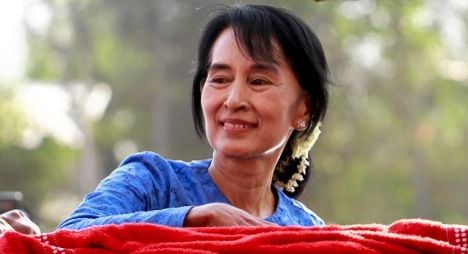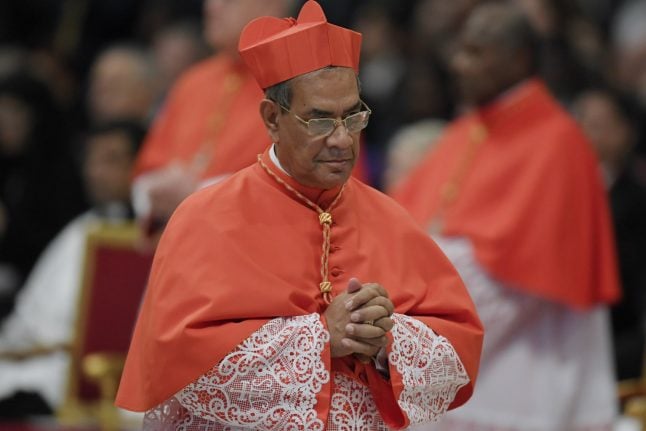The Burma democracy icon, who is on her first trip to Europe after years under house arrest, resumed her schedule after resting on Thursday evening following a packed day of speeches and receptions.
“She feels better, she has a little headache, the programme is maintained as scheduled,” said a member of her delegation who asked not to be named.
The Nobel Peace Prize laureate, who is in Europe for the first time in 24 years, had cancelled a dinner with Swiss President Eveline Widmer-Schlumpf in Bern on Thursday after cutting short a press conference where she had vomited.
Suu Kyi, 66, told reporters she was “totally exhausted” from travelling.
“It is a great honour that Switzerland was chosen as the first European country to be visited,” the head of the lower chamber of parliament, Hansjörg Walter, said as he welcomed Suu Kyi.
The engagement brings to an end her official stay in Switzerland, the first leg of the tour that also takes in Norway, Britain, Ireland and France.
She leaves later for Oslo, where on Saturday the Burma opposition leader will personally accept the Nobel Peace Prize awarded in 1991 “for her non-violent struggle for democracy and human rights”.
Suu Kyi was under house arrest at the time, after the military junta refused to acknowledge her opposition National League for Democracy’s crushing election victory the previous year.
She began her European trip on Thursday with a speech to an International Labour Organization conference, calling for “democracy friendly” investment in her impoverished country and a political settlement to end ethnic bloodshed.
“Foreign direct investment that results in job creation should be invited,” she said, while urging coordinated social, political and economic policies “that will put our country once again on the map of the positive and the successful.”
Her visit marks a new milestone in the political changes that have swept the country also known as Myanmar since decades of military rule ended last year, ushering in a quasi-civilian government and giving her party seats in parliament.
Much of the previous quarter-century she had been confined to her Yangon home on the orders of the ruling junta or afraid to leave the country in case she was barred from returning.
But as she departed for Europe, violence continued to shake western Burma, pitting Buddhist Rakhines against stateless Muslim Rohingya, adding to longer-running ethnic conflicts in other parts of the country.
More than 30,000 people have been displaced by the clashes in Rakhine state, where the government has declared a state of emergency, a senior local official said on Thursday, while at least 29 people have been killed.
“Without the rule of law such communal strife will only continue,” said Suu Kyi. “We need the cooperation of all peoples to bring this to an end.”
In the United States, Coca-Cola announced Thursday it would return to Burma after a break of more than six decades, leaving Cuba and North Korea as the only countries without the iconic American fizzy drink.
The move comes after the United States said it would ease restrictions on investment in the southeast Asian country.
During her European trip, Suu Kyi will address Britain’s parliament and receive an Amnesty International human rights award in Dublin from rock star Bono, followed by a stop in France.



 Please whitelist us to continue reading.
Please whitelist us to continue reading.
Member comments